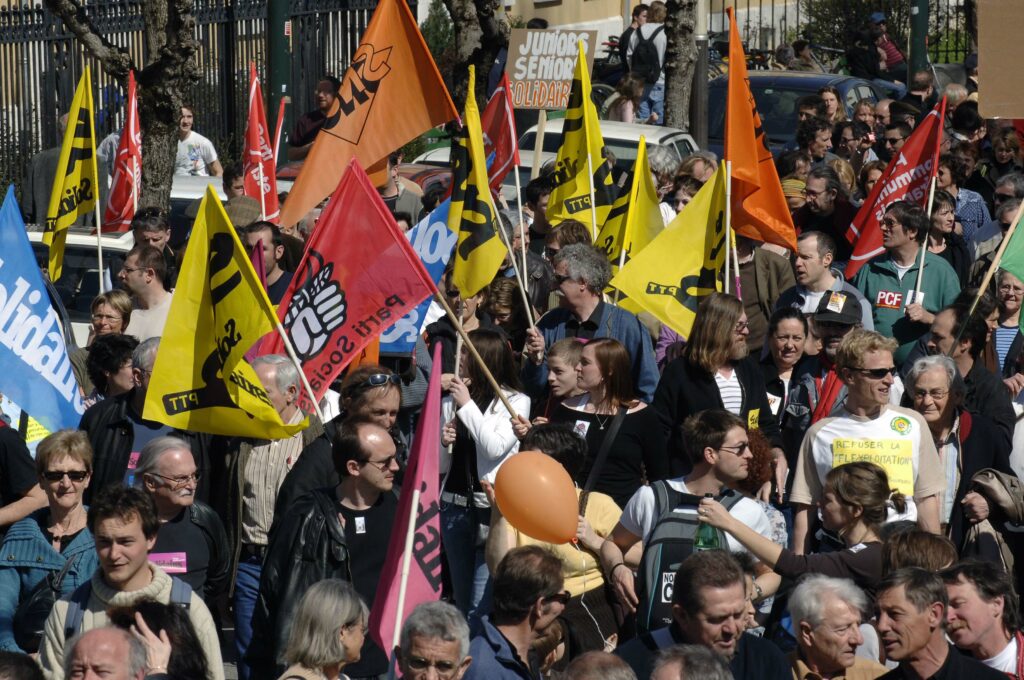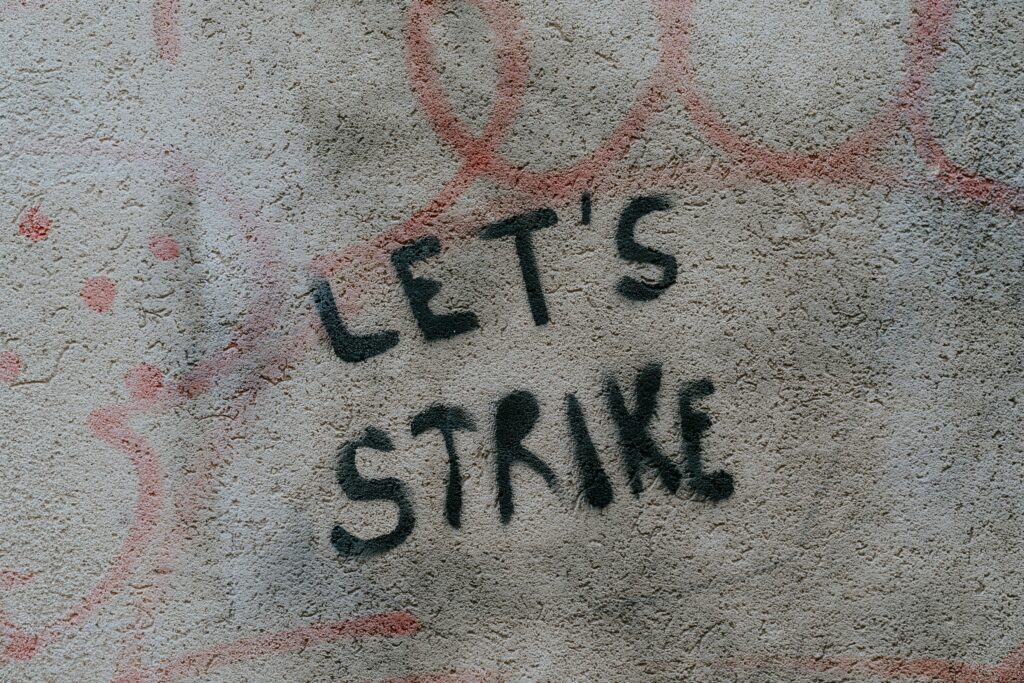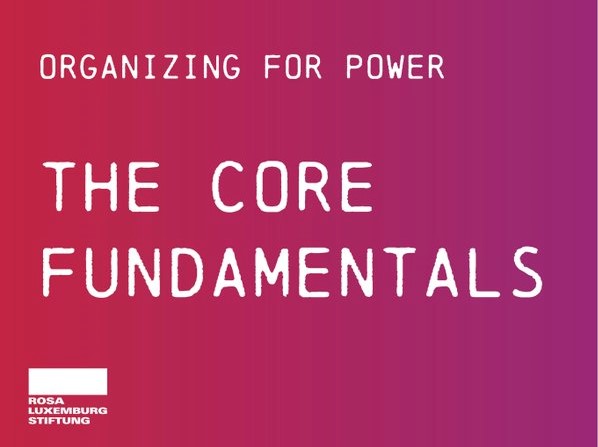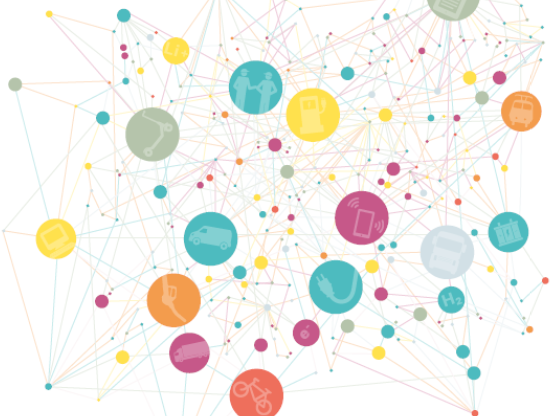Share Twitter Facebook Email Copy URL
Why Game and Tech Workers Must Organize Unions
When people think of labor unions, video game developers and tech workers are rarely the first workers that come to mind. Some might think of construction and demolition workers walking around a site with hardhats. Others might think of a factory worker packaging our food at a warehouse, or maybe even a nurse. I often hear the phrase “unions are for coal miners, not software engineers,” but I know a number of union miners who would beg to differ. Despite common perception, unions are just as important for game and tech workers because they are also subject to racial and gender discrimination, sexual harassment, exploitation, abuse, pay inequity, and many other issues.
As a worker in the game and tech industries, I knew first hand that despite what the bosses tell us, we are workers and we don’t always have the best conditions. I’ve worked minimum wage for companies bringing in millions of dollars in profit, I’ve been in exploitative internships, and I’ve been a burnt out and exhausted developer. Just because most of us are passionate about our work does not mean we can’t be exploited and burnt out. Not everyone in the industry is the stereotypical comfortable office worker with a fancy snack bar and in-office cafe; there exists an often unseen and massive underbelly of tech and games that is built on the back of cheap vendor and temp worker labor. This labor is often outsourced to cheaper labor markets like Wisconsin, Singapore, Romania, and many international locations rather than the typical cities associated with the tech and game industries like San Francisco, Seattle, or Los Angeles. Wherever inequality and exploitation exists, in any form, so too will the potential for organized labor struggle.
Just because most of us are passionate about our work does not mean we can’t be exploited and burnt out.
Emma kinema
Game Workers Unite
Before I started organizing workers at Google and other tech companies, I was heavily involved in helping my fellow game workers fight for better working conditions. In 2018, I co-founded Game Workers Unite (GWU): an international worker-run, labor rights group that sought to lay the seeds for labor organizing in the video game industry. In 2019, myself and other GWU organizers helped organize the Riot Games employee walkout which successfully ended the practice of using forced arbitration clauses to silence workers who have experienced discrimination, misconduct, and abuse.
As GWU gained momentum, many of us began the process of meeting with established labor unions to seriously discuss leveling up our ability to organize the game development industry. Through this process we saw the expansion of concrete union organizing in the UK, Ireland, Sweden, France, and other countries; many local GWU chapters chose to affiliate with or join strong existing unions in media and communications. While game workers from all corners of the globe were organizing, it is important to note that the recent uptick of formal union organizing efforts were largely taking place in western European countries. While these more Eurocentric developments were certainly exciting, it is essential we ground ourselves in the reality that our employers are often massive multinational corporations with workforces in places far more hostile to union organizing than say France. Additionally, some of the most monumental moments in game industry organizing history happened outside of the west, a great example being notably the formation of the first union in the Korean game industry at Nexon Korea in 2018. Organizing must always maintain a focus and a priority on the importance of international organizing.

What’s happening now?
Back in the United States and Canada, I evaluated our options and ultimately decided to join the Communications Workers of America as a Campaign Lead focused solely on an effort to organize tech, game, and digital workers. In CWA, I found a democratic and fighting union with a long history of organizing in tech, media, and telecommunications and a penchant for new and creative ways to organize.
Since then, we have seen some major and exciting advances after launching the CODE-CWA initiative to organize in tech and games. In early 2020 we hosted a national convention of tech and game worker organizers which sparked a series of really groundbreaking organizing efforts. In games, we organized what we believe to be the first successful strike in the history of the game industry when freelance game writers for the game Lovestruck won an over 75% average pay increase after a 21-day strike. We also organized with workers from countless other game studios including assisting with filing unfair labor practices on behalf of Activision Blizzard employees, and this year CWA unionized the workers at Paizo games, the company behind the massively successful Pathfinder and Starfinder tabletop roleplaying games. In tech, we’ve won union certification at several companies including Glitch, NPR, Change.org, Mobilize, EveryAction and more – in addition to launching the Alphabet Workers Union which unites hundreds of workers across full time, vender, temp, and contract job roles in a non-contract union model. In the process we organized the first successful voluntary recognition of a tech union in the US, ratified the first tech industry collective bargaining agreement in the US, organized the first unit of Canadian tech workers, and organized the largest certified unit of tech workers in the US.
It is important to understand that the worker experiences in the game development industry and the tech industry are very closely connected and influence one another. Economically speaking, the game industry is deeply rooted within the tech industry, although it does have unique cultural elements similar to entertainment. Massive webs of connections across tech, games, media, and telecom can be seen between tech companies like Google and Amazon. AT&T, the company with the largest density of organized CWA members, is known as a telecommunications giant, but it also has its hand in software and tech development, game development, media production and publishing, telecommunications, and internet infrastructure.
Tech companies monopolizing whole markets can hurt workers (via collusion in big tech to deflate conditions for instance), but also our communities and society at large. Many of us work in tech because we believe we can help make the world a better place, but despite the potentially liberatory nature of technology, it is often employed in the service of giant corporations that have largely negative impacts on society. And as our fellow CWA members in the AFA-CWA flight attendants have shown, you can wield your labor to affect situations far beyond your immediate workplace conditions – such as when they successfully helped pressure the end of a federal government shutdown by threatening to strike the airline industry.
Shaking things up in the tech world
We want to build that kind of society-shaking worker power in tech. To do so we must understand that our working conditions are intimately bound up with the societal impact of our technology on the world. Many of us get into union organizing through our personal politics and values, but that alone cannot build large majorities of workers ready to take on class struggle in their workplace. You won’t win over your coworkers simply by lecturing them with a political economy analysis of your company and how it connects to massive societal issues. To build to those worker majorities you must first start by organizing your coworkers around immediate issues people are individually motivated by. The individual day to day needs and workplace interests of tech workers might not always seem connected to that larger picture and political analysis of our industry’s effect on the world, but it is absolutely essential that we tap into those personal interests if we are ever to build the mass worker power we need to wield the industry for the betterment of society. In organizing you cannot skip the step of talking to coworkers and identifying their personal motivating issues, you must do that if you want to build union power – so we must better understand the needs of game and tech workers.
Issues that personally impact developers, engineers, and graphic designers might be things like burnout and high turnover due to practices like “crunch”, when workers are expected to work overtime (even through nights and weekends) in the lead up to a game launch, or “sprints”, when tech workers are expected to similarly work at break neck speed toward a product development goal.
In the game and tech industries, as in all others, discrimination toward women, people of color, and queer workers is the norm. This comes from structural inequalities, direct silencing of marginalized workers, abusive management, and more – one only needs to look up the cultures of Activision Blizzard, Riot Games, Ubisoft and others to see its widespread effects.
There are even unique forms of harassment and discrimination in games and tech where workers, particularly those with marginalized identities, suffer harassment and abuse campaigns by online gaming communities, and sometimes even fellow workers. In 2018 ArenaNet employees fought their company over the lack of support it showed to female workers who were facing harassment online. Game workers have been fighting against harassment for long time, date back even earlier than the height of Gamergate, a mass coordinated online doxing and hate campaign directed primarily against women, queer folks, and folks of color in the game industry which helped train and launch the modern incarnation of the online alt-right.

All the while there exists a massive corporate push to shift game and tech development work into “permatemping” and vendor roles that burn through exploited workers with low pay, little to no benefits, and nearly zero labor protections. These corporations have intentionally created a two-tiered system of exploitation that perpetuates racist and classist structural bias with white and highly educated workers most likely becoming full time employees, while marginalized workers, workers from lower income backgrounds, and Black and brown workers given second tier roles. This trend is only increasing in scope, and even full-time employees have started to see their roles systematically replaced with low wage, low benefit, poor stability jobs that mirror the recent precarisation of many other industries.
These same bosses have also monopolized game development studios, media platforms, and tech companies, such as the merging of Activision and Blizzard, which brought along another set of issues that workers had no control over, or the continued absorption of competition by Facebook and Google, subjecting more and more workers to their exploitative practices.
All of these experiences highlight why workers in games and tech have real reasons to fight back against their corporations and, like all workers, deserve the power, respect, dignity, and democracy that comes with being a union member. Labor unions approach worker issues from multiple angles, addressing both economic issues like pay and benefits, as well as social ones like discrimination, harassment, diversity, equity, and inclusion. Our economic and social issues are deeply linked with one another, and our personal day to day issues are connected to our broader societal goals for the use of our labor.
Communications Workers of America (CWA)
In particular, unions like CWA through the CODE-CWA initiative have developed a community of workers and organizers with experience and expertise across a range of industries, including in the games and tech world. This growing body of worker organizers and experience is setting the pace for serious organizing in our industry, and is the leader in historic organizing firsts.
I am very proud to say that our union in the US and Canada, CWA, has a long history of internationalist analysis and practice – including being held at fascist militia gunpoint alongside our union siblings in the Philippines. Specifically in tech, our CODE-CWA campaign is very well positioned to fight multinational companies across borders, both because we embrace a creative approach to organizing that can include international workers at times and because we are members of various international labor federations such as UNI Global Union through which all of our local fights across the globe can link up and strengthen each other.
CODE-CWA seeks to build solidarity across industries, in recognition of the fact that the fight of workers is a singular one forged by a single working class across job types, industries, and even countries. All workers share a common struggle whether you teach children, serve food, drive trucks, smelt iron, construct buildings, or develop software.
I’m excited to be witnessing in real time the awakening of unionism and class consciousness in a whole new sector of the modern workforce. Our potential for societal change is huge – if we can learn from the struggles of our union brothers, sisters, and siblings who have come before us.
Emma Kinema, Senior Campaign Lead, CODE-CWA



